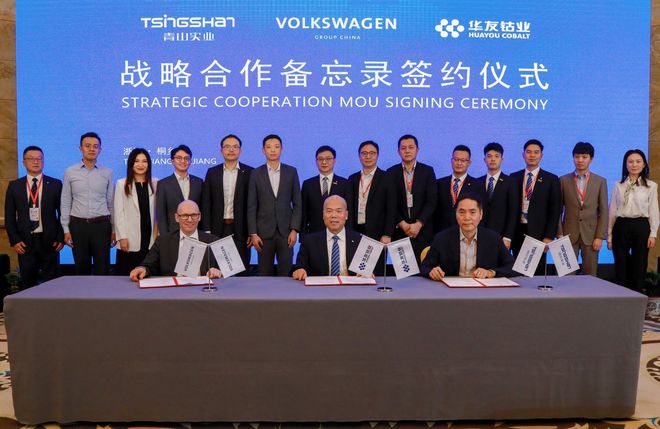Volkswagen plans to set up a joint venture with Huayou Cobalt and Tsingshan Group in Indonesia and a joint venture with Huayou Cobalt in Guangxi, China.
With raw material prices rising sharply, it has become a new norm for car companies to join forces with raw material producers.
Volkswagen China announced today that it has signed two strategic cooperation memorandums of understanding with Huayou Cobalt and Tsingshan Holding Group to further strengthen its position in the battery value chain and enhance its competitiveness in the fast-growing electric mobility sector.
Volkswagen (OTCMKTS: VWAGY), Huayou (SHA: 603799) and Tsingshan plan to establish a joint venture in Indonesia, where the three parties will jointly invest their resources in the production of raw materials for batteries.
The total raw material capacity of the joint venture is expected to meet the supply of nickel and cobalt raw materials required for 160 GWh batteries.
Indonesia has more than 10 percent of the world's nickel laterite reserves.
Volkswagen also plans to establish a joint venture with Huayou in Guangxi, China, to engage in the refining of nickel and cobalt sulfates, precursor processing and cathode material production.
Huayou will use its integrated production process to help Volkswagen optimize battery costs and reduce carbon emissions in the new energy vehicle (NEV) supply chain.
These collaborations aim to achieve cost advantages, secure raw material supply and achieve a transparent and sustainable supply chain, according to Volkswagen.
Anode materials are the main component of lithium-ion batteries and determine the energy density of the battery, as well as accounting for most of the cost of the power cell.
These collaborations will help achieve Volkswagen's long-term goal of reducing battery costs by 30 percent-50 percent, while continuously improving key performance such as power battery energy density through technological synergies, according to the automaker.
